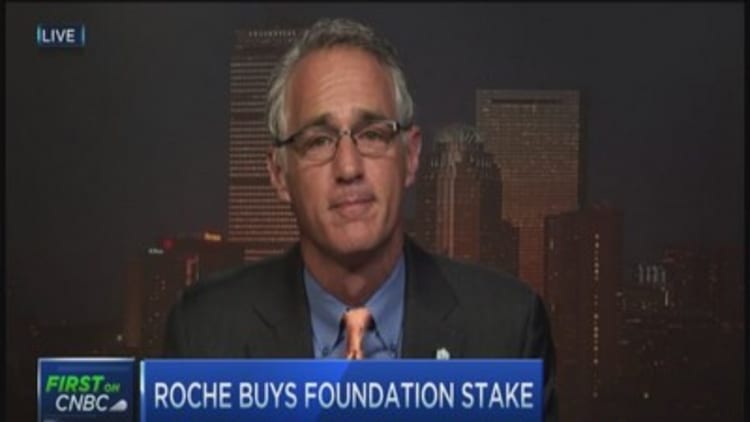One of the term sheets came from a traditional health and life sciences fund, which Otte said offered him a modest valuation in exchange for about 40 percent of the company.
Another came from a Silicon Valley tech investor with a far higher valuation and check size than he expected. He turned it down, but eventually ended up taking some money from other tech investors with new-found interests in biotech.
"Tech investors will offer higher valuations if they believe you're going to grow
In recent years, technology venture capitalists are starting to embrace the health sector in a new way. Rather than investing in fitness gadgets and other tools for wellness, Sand Hill Road's VC firms and tech accelerators are now stepping into the life sciences.
Some venture firms staffed up with medical experts and built out a scientific network, like Alphabet's GV (formerly Google Ventures). Others are driven by a thesis that software will "eat bio," as in the case of Andreessen Horowitz. All of these firms see huge dollar signs, given that the health sector is valued at billions of dollars.
"Just think of the marketing budget that Google can go after (with ads and such) — $200 billion," wrote Vijay Pande, general partner at Andreessen Horowitz's new bio fund in a blog post. "But compared to that, the U.S. healthcare budget is $2 trillion."
A tweet from VC Bill Gurley states the tech investor's point of view succinctly:
Life sciences investors told CNBC that the new competition will be good for
But they also expressed concerns that some Silicon Valley tech investors are chasing the hype around health tech and might not be willing to stick
A biotech company is a science experiment at its core that has never been run before.Ambar Bhattacharyyamanaging director, Maverick Capital Ventures
"I hope that (new) backers understand that patients' lives are at stake," said Alexis Borisy, a partner
"It takes 10 to 15 years to bring a product to broad commercial acceptance, and companies need to have backers that understand that," he added.
Chasing deals
Otte ended up settling somewhere in the middle, taking a combination of biotech and tech financing. Andreessen Horowitz led the $65 million round, and GV, Charles River Ventures, Polaris Partners are among those that participated.
"It was nowhere near the highest valuation," said Otte. "A high valuation at this stage doesn't help
Like other venture-backed liquid biopsy companies, including Grail and Guardant Health,
"A biotech company is a science experiment at its core that has never been run before," said Ambar Bhattacharyya, a managing director at Maverick Capital Ventures, a fund focused on health and technology.
Life sciences investors warn
"The velocity in the tech world has created this dynamic of chasing deals with big check books," said Wende Hutton, a health investor with Canaan Partners. "That's a lot more difficult when rooted in the reality of clinical trials."



